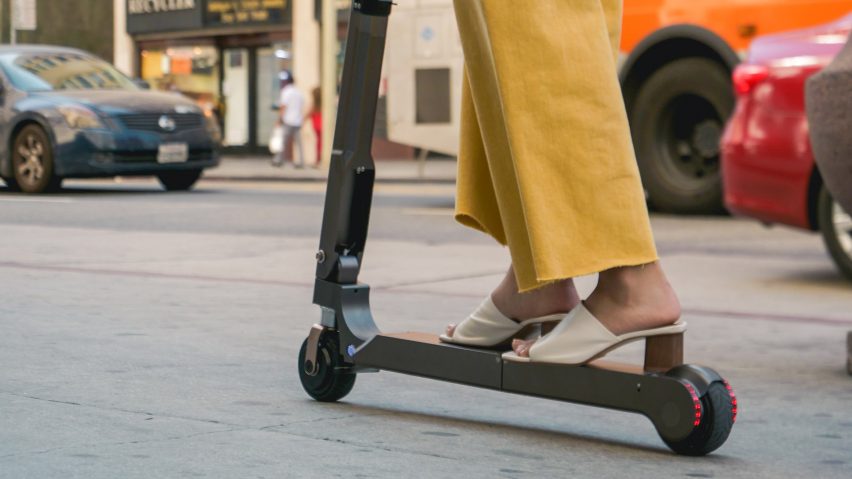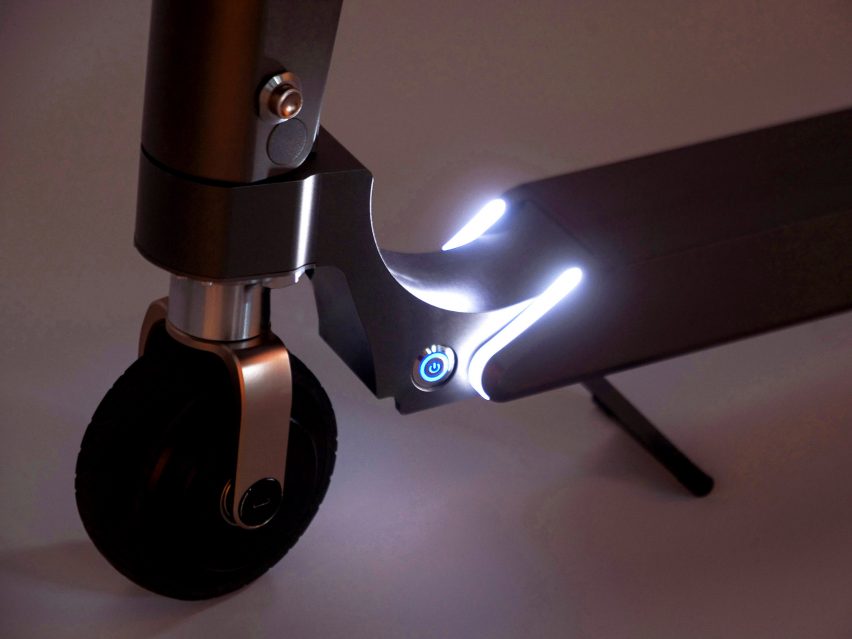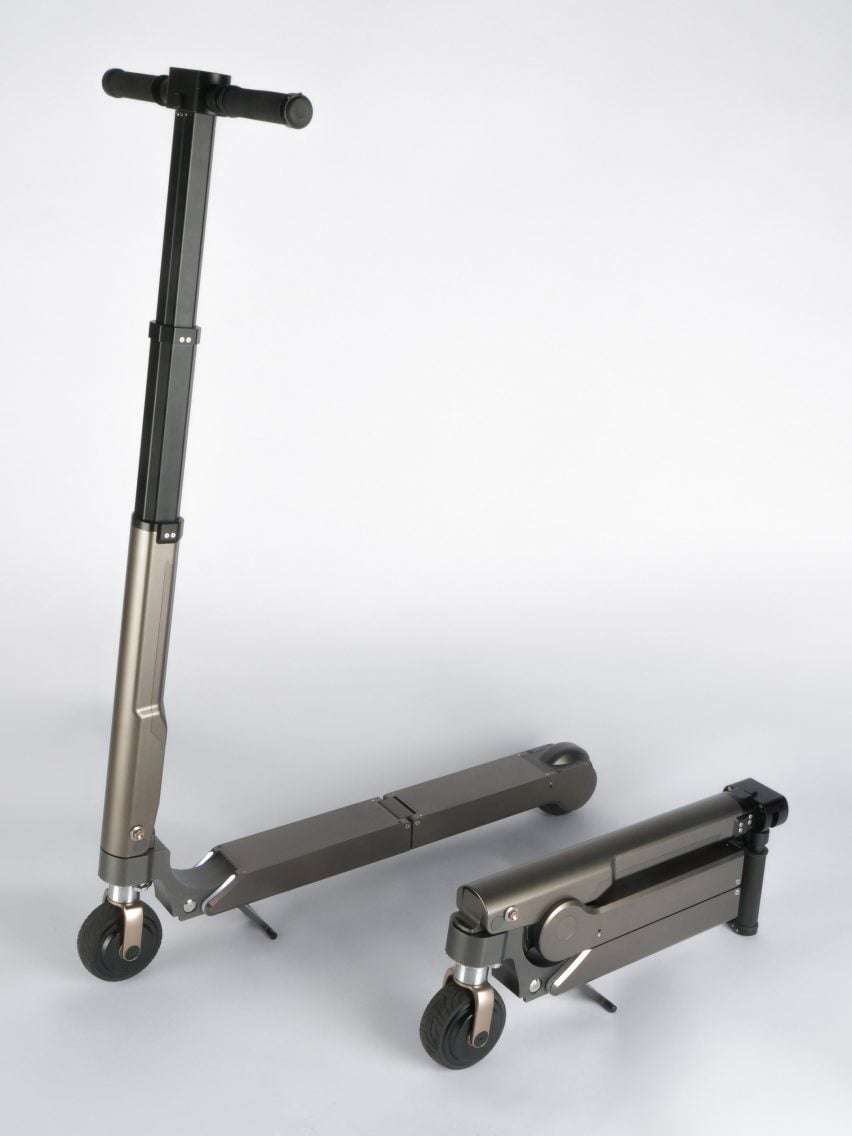
Hyundai reveals foldable electric scooter designed to be charged in its cars
Hyundai has created a prototype scooter that folds down to the size of a backpack and can be charged in a car using the energy created while driving.
The scooter has been designed for use with future Hyundai or Kia models, which would come with designated storage and charging compartments.
To make the Hyundai scooter as portable as possible, its compact frame folds into three and weighs in at only 7.7 kilograms.

Hyundai's latest scooter is an updated version of one it presented at the Consumer Electronics Show (CES) in 2017. Unlike its predecessor, this prototype is powered by a 10.5 amp hour (AH) lithium battery, which can reach speeds of just over 12 miles per hour and power the vehicle for around 12 miles on a single charge.
Hyundai has plans to integrate a regenerative braking system in the future, which would convert waste kinetic energy from the scooter's brakes into electricity used to power it. The company claims this could increase its range by up to seven per cent.

The updated 2019 version of the scooter also has a rear rather than a front wheel drive, a safety measure introduced to distribute the rider's weight towards the back and improve balance. The front wheel in turn, is suspended to make for a smoother ride on rough surfaces.
Two LED headlights in the front and two rear tail lamps make for safe nighttime riding, while a digital display shows speed and battery status.
According to Dong Jin Hyun, head of robotics at Hyundai Motor Group, the aim of the game is to make getting from A to B as seamless as possible "while helping to reduce congestion and emissions in city centres".

The scooter marks the latest in a series of designs by the brand, which aim to tackle issues surrounding the future of transport. The manufacturer recently revealed its hydrogen-powered SUV NEXO as well as Elevate, a concept for an electric vehicle with robotic legs that could navigate the uneven terrain of natural disaster zones.
With the integrated scooter, Hyundai hopes to take its share of the booming micromobility market – smaller vehicles such as bikes and scooters that solve the "last mile" problem of getting drivers from their car or a public transport stop to their actual destination.
The majority of growth in this area is projected to be in ride-sharing services, with their customer base growing two to three times faster than car sharing or ride hailing according to management consultancy McKinsey & Company.
American rental service Bird is one of the biggest players in the game, and earlier this year released what it claims to be the safest, most advanced scooter to hit the roads yet.